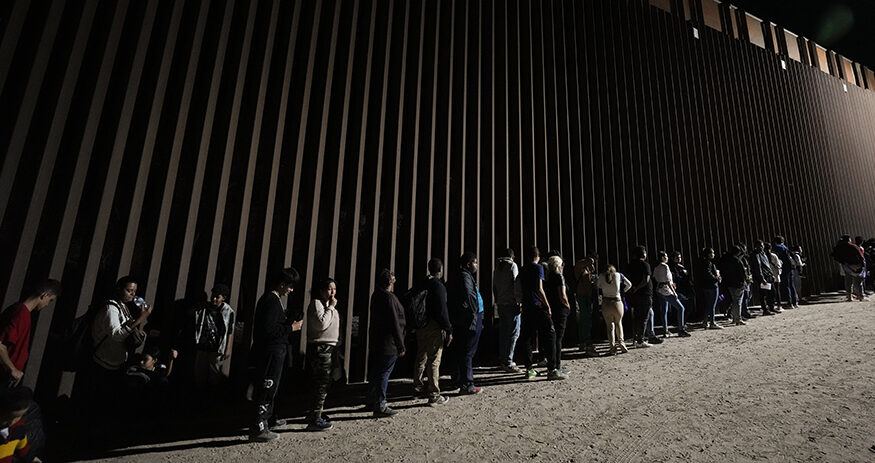The unintended consequences of immigration reform
Originally published on AZCapitolTimes.com
As is often the case, when we try to solve one problem, we overcorrect, and people become collateral damage.
Seventeen years ago, I was incarcerated in the United States for a nonviolent offense. I served my time, rebuilt my life, and have now spent more than a decade as a law-abiding, tax-paying citizen. Today, I am the executive vice president of Global Sales for a U.S.-based company with global operations and clients around the world.
Recently, I was scheduled to travel to the United Kingdom for business. I have done this many times before without issue. This time, however, I was denied entry under the UK’s new Electronic Travel Authorization (ETA) program, which screens visitors for prior criminal convictions. Though decades old, my conviction triggered an automatic rejection, with no opportunity for context, review, or appeal.
Of course, this was a personal inconvenience. However, it was also an example of how immigration policies, intended to enhance security, can produce unintended economic and social consequences.
The policy change
The UK’s ETA, introduced in 2024, requires travelers from visa-waiver countries, including the U.S., to obtain pre-approval before entry. While the goal is to prevent entry by individuals who may pose a security threat, the system uses binary checks on criminal records rather than case-by-case evaluations. There is no process for considering rehabilitation, time elapsed since the offense, or the nature of the conviction.
In effect, it creates a lifetime travel ban for many people with any conviction, regardless of their present risk.
The scope of impact
The U.S. has one of the highest incarceration rates in the world, with an estimated 77 million Americans carrying some form of criminal record. That’s nearly one in three adults. The majority are for non-violent offenses. Many of these individuals are now part of the workforce, including in senior roles that require international travel.
Companies that hire under “second chance” employment models — a growing business trend supported by the U.S. Chamber of Commerce and major corporations like JPMorgan Chase, Walmart, and Koch Industries — are particularly exposed to these restrictions because, from a business perspective, mobility matters.
International travel is often critical for building client relationships, closing deals, and managing cross-border teams. When skilled employees are barred from entry, companies lose opportunities, delay projects, and sometimes forfeit contracts. For global sales organizations, these barriers have a direct impact on competitiveness.
The broader economic loss is harder to quantify but significant. According to research from the Center for Economic and Policy Research, excluding people with criminal records from the workforce entirely costs the U.S. economy an estimated $78–$87 billion in lost GDP annually. International travel restrictions amplify that loss on a global scale.
A better approach
The U.S. and many other nations invest heavily in rehabilitation, reentry programs, and initiatives to reduce recidivism. The company where I work is one example. Over the past 30 years, we’ve employed over 3,500 incarcerated women, providing business training, job placement, and post-release support. The recidivism rate for program graduates in Arizona is just 5.4%, compared to the national average of 65% within five years of release.
Policies like the UK ETA ignore these outcomes. They treat rehabilitation as irrelevant, undermining the very principles that justice systems claim to support.
Security screening is essential. But it can be done without imposing blanket, lifetime penalties. Several countries, including Canada and Australia, have systems that allow individuals with past convictions to apply for “rehabilitation” or “character” assessments. These reviews consider factors such as the seriousness of the offense, time elapsed, evidence of reform, and the individual’s current role in society.
A similar model could preserve security objectives while allowing reformed individuals to travel for legitimate business, cultural, or family reasons.
The unintended consequences of overbroad immigration rules extend beyond the formerly incarcerated. They affect companies trying to expand globally, families separated by borders, and the broader economy. In an interconnected world, the ability to move people across borders matters, and when policies unnecessarily restrict that movement, everyone loses.
The intent of immigration reform is valid: protect borders, ensure safety, and maintain sovereignty. But when reforms fail to differentiate between those who pose a real risk and those who have demonstrably rebuilt their lives, they shift from protection to exclusion. And exclusion, applied indiscriminately, is not security. It’s prejudice codified into policy.
Alicia Rasta is executive vice president of Global Sales for Televerde.


